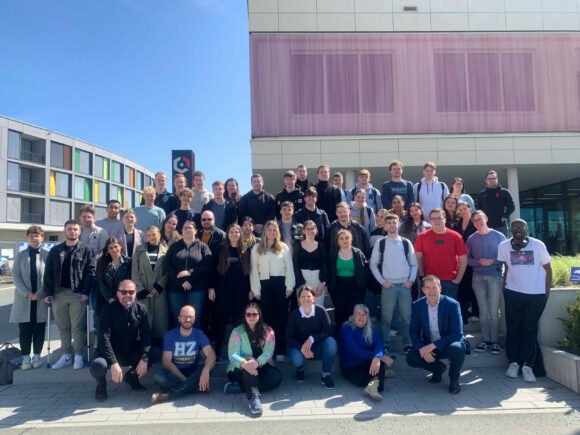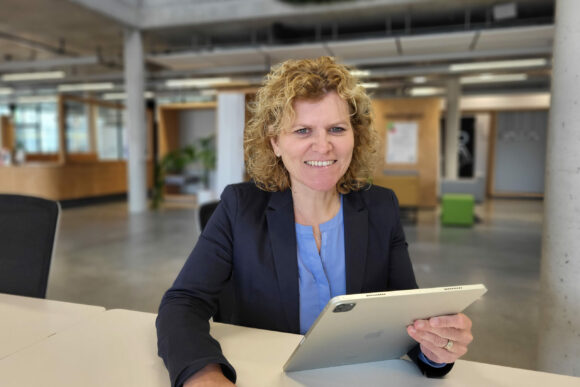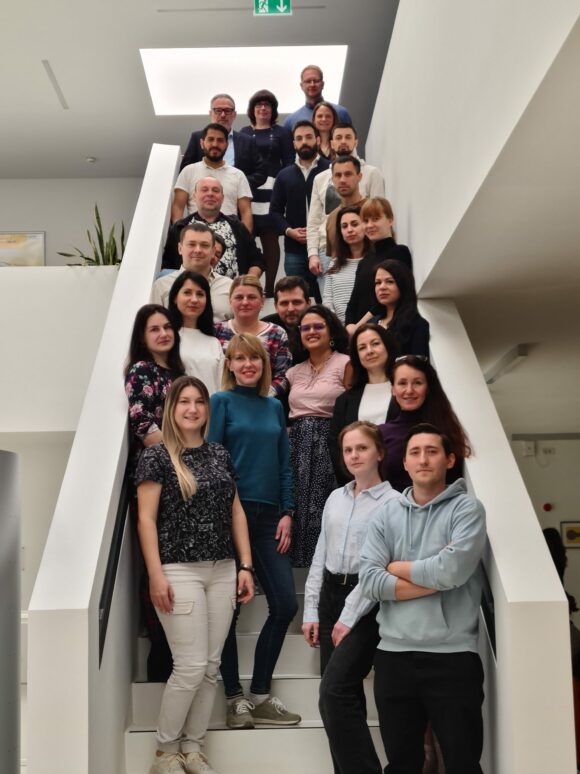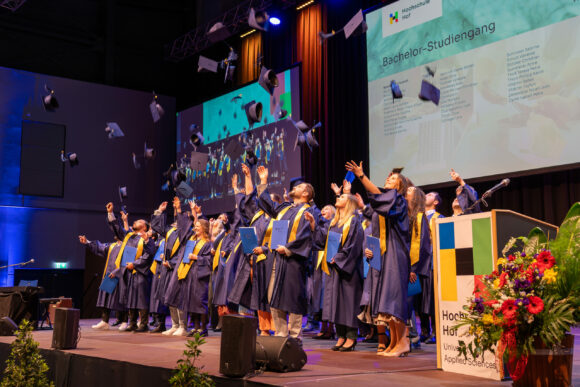
Almost 1600 students at Hof University of Applied Sciences do not come from Germany, but from many different countries. A total of 70 nations can be found on our campus. The numbers have risen significantly in recent years. We work together with many former students on projects, and we simply keep in touch with some of them.
Today we are talking to a former computer science student who graduated in 2018 and comes from Japan but stayed in Franconia: she has been working as a programmer at Siemens in Erlangen for six years and talks about her life in Germany: Natsuko Podzimek from Tokyo.
What gave you the idea to go to Germany to study?
I moved to Germany simply because of love. I was working as a freelance artist and when I got my permanent residency and was able to save some money, I decided to study as my income as an artist was not enough. So the idea of studying in Germany came about rather by chance. I quickly enrolled on a language course at Hof University of Applied Sciences to learn German. This course was specifically aimed at foreigners who wanted to study in Germany later on. What can I say: this course left me with a positive impression of the university.
How did you get started?
When I started my studies, I was already over 30 years old. Most of my fellow students were under 20 and I was the only foreign student with a non-German Abitur. Fortunately, I found some nice fellow students, which enriched my student life a lot. It wasn’t easy at the beginning, I had difficulties following the lessons. I then ordered books from Japan and learnt on my own, which worked well. Some of my fellow students were also helpful, so my student life developed positively.
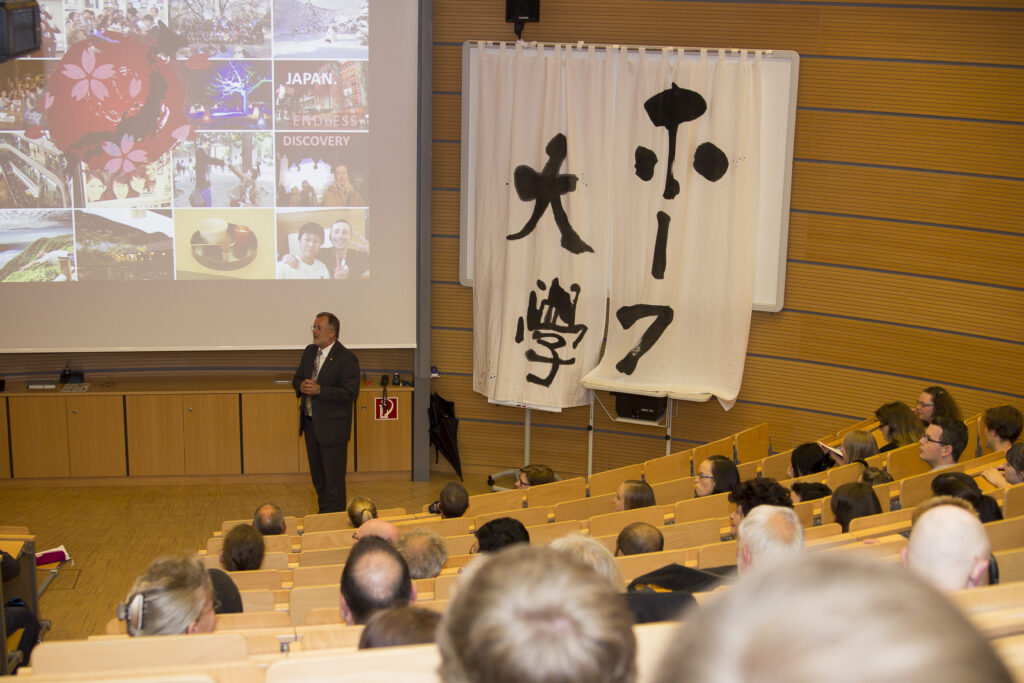
Did you already work during your studies?
In my first year, I taught art during the semester holidays, which was my main job before I started studying. In the summer holidays of my second year, I completed an internship at RAPA in Selb, and in the higher semesters I worked as a student trainee at Scherdel in Marktredwitz.
Were there any other stations in Europe for you?
Before my studies, I lived in the Czech Republic for a while. Then I spent some time in Saxony. After graduating, I worked in Regensburg on my mandatory internship and my final thesis for Continental Automotive. After graduating, I then applied for a traditional job and found my position at Siemens.
What exactly do you do at Siemens today?
I’ve been working in the same team at Siemens Mobility for almost six years, and it feels like it’s been renamed 100 times. I have worked on various projects, some of which are still running today. Depending on the size of the project and the budget, I had different responsibilities. At the moment, I mainly develop Java backend software and sometimes also the Amazon WebService infrastructure for it. I work in a department at Siemens where various trains are built. My applications are used by internal customers to analyse train diagnostics or manage fault events in the warranty phase.
in 2016, as a student, you were in charge of organising the country evening on Japan here at the university. It was a great event; I still remember the sushi course and drawing Japanese characters. What else do you remember?
I presented a comparison between the city of Tokyo and Selb, based on the population and the number of people per square kilometre. This idea went down well with the audience. It was mainly about the really stark contrast between a large metropolis and the small town of Selb. For the event decorations, I painted a calligraphy and a bamboo picture, which gave me the opportunity to use my previous professional experience
Have you taken part in any programmes at Hof University of Applied Sciences?
I took part in the mentoring programme, which helped me a lot. I had concerns about whether I would be able to successfully start a career after graduation and that was my motivation for taking part. My mentor, Mrs Habbel, helped me a lot with my application and gave me German lessons to improve my pronunciation. We are still in contact today. I also took part in various international events, such as Diwali, the Indian festival, where I painted henna tattoos for the participants.
What do you remember fondly from your time here at Hof University of Applied Sciences? Was there a particular hobby that you pursued?
I always enjoyed hiking in the beautiful natural surroundings of the Fichtelgebirge. There are also some great spas in the area.
I’ve liked aeroplanes since I was a child. Because I’m short-sighted, I was never able to do it professionally. During my studies, I also went to the open day at Hof Airport. Unfortunately, I couldn’t afford to take a sightseeing flight or get a pilot’s licence back then. It wasn’t until a few years after my studies that I started flying school, but not in Hof. But I did land at Hof Airport once. It was nice to see my home town and the surrounding area from above.
And from your time here, is there a place you like to think about?
I enjoyed my time at Rosenthal in Selb. Ceramic products are the most popular handicraft in Japan. Rosenthal ceramics are of particularly high quality. When Japanese friends visit Selb, I like to take them to the Porzellanikon. The FEILER company in Hohenberg/Eger is also very popular in Japan. I often go to the outlet when I need gifts for Japanese people.

Finally: Do you have any tips for today’s computer science students?
Surprisingly, I use a lot of the content of my degree programme in my daily working life. The topics chosen by the professors are really useful and practical. Therefore, the course content should be taken seriously and internalised well.




